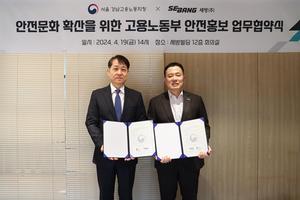 |
The importance of sleep is well recorded. Sleeping helps restore the brain by flushing out toxins that accumulate during waking hours. On the other hand, sleep deprivation is known to decrease the brain’s cognitive performance by impairing its ability to think and process information. Although it is unknown exactly what goes on in the brain during sleep, its restorative role led researchers to hypothesize that there exists a link between sleep and neurocognitive disorders. A growing amount of evidence is beginning to suggest that a good night’s sleep can help ward off Alzheimer’s Disease (AD).
Alzheimer’s Disease is characterized by the accumulation of neurofibrillary tangles and amyloid plaques between neurons. However, research has found that sleep deprivation is associated with increased levels of beta-amyloid in the cerebral spinal fluid (CSF), the fluid that bathes the brain. Typically, these beta-amyloid proteins are released into the circulatory system, but in some cases they remain in the brain, causing damage to neurons and their functions. Another study conducted by Dr. Maiken Nedergaard, co-director of the Center for Translational Neuromedicine at the University of Rochester, identified a “glymphatic system” that seemed to rinse out amyloid fragments generated by active neurons during sleep. To sum up, these results add credence to the notion that sleep increases the clearance of waste products in the brain.
Although these studies do not guarantee that sleep loss leads to an increased risk of Alzheimer’s, they prove the increase of possibility.
They are evidential to prove that everyone has to sleep at least 7~8 hours every day.
수면 부족이 알츠하이머 병의 위험을 증가 시키나요?
알츠하이머 질환과 잠의 상관관계
수면의 중요성은 잘 기록되어 있다. 수면은 깨어있는 시간 동안 축적된 독소를 제거하여 뇌를 회복시키는 데 도움을 준다. 반대로 수면 부족은 정보를 사고하고 처리하는 능력을 손상시켜 뇌의 인지 능력을 저하시키는 것으로 알려져 있다. 수면 중 뇌에서 무슨 일이 일어나는지는 정확히 알려지지 않았지만, 연구자들이 수면과 신경인지 장애 사이에 연관성이 존재한다는 가설을 세웠다. 실제로 숙면을 취하면 알츠하이머병 (AD)을 예방할 수 있다는 증거가 늘어나고 있다.
알츠하이머병은 뉴런 사이에 신경원 섬유 엉킴과 아밀로이드 플라크가 축적되는 것이 특징이다. 연구에 따르면 수면 부족은 뇌를 목욕시키는 체액인 대뇌 척수액 (CSF)의 베타 아밀로이드 수치 증가를 일으킨다. 일반적으로 이러한 베타-아밀로이드 단백질은 순환계로 방출되지만 경우에 따라 뇌에 남아 뉴런과 그 기능에 손상을 입힌다. 로체스터 대학의 중개 신경 의학 센터의 공동 책임자인 Maiken Nedergaard 박사가 수행한 또 다른 연구에서는 수면 중에 활성 뉴런에 의해 생성된 아밀로이드 조각을 씻어내는 "glymphatic system"이 확인되었다. 이러한 결과를 종합하면 수면이 뇌의 노폐물 제거를 증가시킨다는 개념에 신뢰를 더한다.
이러한 연구가 수면 손실이 알츠하이머 발병 위험을 증가시킨다는 것을 보장할 수는 없지만 그러한 가능성을 높이고 모든 사람에게 매일 최소 7~8시간의 수면을 권장하기에 충분하다고 할 수 있다.
이서진 강남포스트 학생기자 webmaster@ignnews.kr
<저작권자 © 강남포스트, 무단 전재 및 재배포 금지>

 고용노동부 강남지청-세방(주), 안전문화 확산 위한 업무협약 체결
고용노동부 강남지청-세방(주), 안전문화 확산 위한 업무협약 체결


